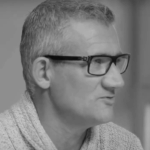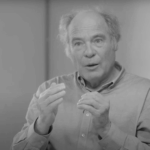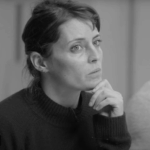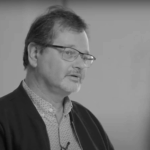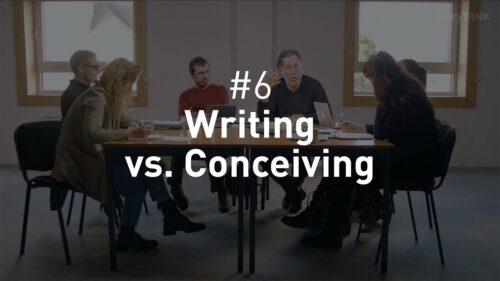Season 1
SEASON 1 tries to answer the following questions through its brainstorming sessions:
How and why does the viewer dive into a story?
Can stories transform us?
How do stories work?
How do scriptwriters work and conceive?
Do humans need stories? What kind of stories help us in daily life?
How does storytelling produce meaning?
Is it possible to create new story models?

About
SPECTATOR PHYSIOLOGY
Designing a fictional narrative generally requires that authors and script-writers maintain a paradoxical relationship between the notion of the recipient-spectator being both the motivation and the source of constraint. Though the recipient is central to the storytelling mechanism, a less essential approach would sometimes be preferable because of the implications related to marketing alone. This paradoxical relationship presents an obstacle to the construction of a common core of understanding of the spectator’s experience from a practical point of view.
Bearing in mind the idea of facilitating the emergence of this core of understanding relevant to the community of fiction writers, this unprecedented first StoryTANK session will entail a meeting between scriptwriters bearing practical skills, and researchers or experts, bearers of specific expertise in key areas of reflection:
The description of the neuro-psychological and physiological experience when immersed in a fictional film.
What kind of activity does this involve? What are the physiological mechanisms or reflexes involved? What are the conditions for success? What are the circumstances when immersion fails? Are these conditions universal?
The spectator’s motivations: what does he/she expect from this experience? What kind of conscious satisfaction needs are mostly sought by the spectator? What are the existing less conscious expectations?
The emotions involved in this immersive experience. The association between these emotions and the pragmatic dimensions of the story.
Are we expecting to experience familiar or unprecedented emotions? To be entertained or to delve deeper into self-discovery through the fictional experience? Do film stories satisfy specific emotional needs? Is the central phenomenon of empathy rooted in an emotional experience?
The conditions for the emergence of meaning from an emotional experience.
What role does moral judgment play in the spectator’s experience? Is this a key factor? In what way does the emergence of meaning depend on the spectator’s construction of a metaphor?
Each of these themes will be addressed through discussions relative to our main concern: in what way can scientific expertise support or contradict the scriptwriters’ intuitive skills and how can it enhance their writing methods? To what extent does it challenge established theories and assumptions in the field of scriptwriting?
CREATIVITY DYNAMICS IN SCREENWRITING
Since the 1980s and the so-called « scenario crisis » in Europe, scriptwriters have had at their disposal a set of methods and theoretical models to organize and structure their work. But what of the originality of the ideas themselves and their singularity? In what way can we facilitate author creativity to encourage them to think outside the square, to dare explore new territories or to explore them in a different way?
The very notion of creativity has been the object of scientific studies and analyses for several decades. The creative process with its different stages are now known. Yet, this precise description of the conditions for innovation and the emergence of ideas has had little influence on the practices of screenwriting professionals to date.
This second segment of the StoryTANK aims to initiate exchange between scientists and scriptwriters on the genesis of ideas, the nature of the storytelling creative process, the conditions and devices needed to facilitate this creativity.
What is a new idea? How is it achieved? How do we recognize it?
How can we generate an abundance of possibilities to avoid limitation to an initial idea we think we might have? Are some attitudes more creative than others? Are there methods or circumstances which facilitate the generation of new ideas?
What is the process for culling and selecting ideas?
What happens between the apparition of an initial idea and the confrontation of this idea with competing and sometimes complementary ideas? And according to which process can a set of ideas lead to a singular construction?
To what extent is the creative process at work in storytelling comparable to the process at work in scientific disciplines?
How do these contemporary creativity concepts compare to the classical learning model which goes from concept to application, from general to particular, from plan to realization (top- down mode)? What are the advantages of a bottom-up approach (from concrete matter to conceptualization)?
A FICTIONAL NARRATIVE’S ANTHROPOLOGICAL FUNCTION IN THE 21st CENTURY
In today’s societies, fictional narratives (films or series) are generally classified in the “entertainment” category. To entertain, for recreational purposes. As if their anthropological importance is equivalent to a game of pinball. And yet it is these image-determined fictional narratives which forge our emotions, our representations of the world, our projections.
At the same time, a fundamental trend prevails since the 1960s among European authors (theatre, cinema, novels, etc.) which tends to belittle the very notion of storytelling. As if populism is inherent to the narrative construction, debasing in sorts. What are the consequences of this tendency in decline of storytelling in Europe?
In contrast, on the other side of the Atlantic since « Star Wars », structurally speaking Hollywood narratives have become standardized, industrialized, generalising the story’s paradigm along with superhero characteristics. What are the current or foreseeable consequences of this type of evolution?
These differences between Europe and the United States may appear incidental if we consider that storytelling is commonly perceived as second rank within the rituals of a society or culture. How true it this? Precisely what role does “entertainment” play in today’s society?
In their work, feeding off their personal sensitivity and judgment, scriptwriters are often unaware of their anthropological or societal role, of their geographical affiliation (or not) or of their interpretation of the world we live in.
In what way can we help them to better understand the consequences of what they are aiming to develop?
In this third segment, participating researchers will share their hypotheses on the nature of the anthropological function of storytelling. For example, for Johan Braeckman, a Flemish philosopher, the fictional narrative is a kind of “flight simulator” which prepares us for interactions with our fellow kind, with the outside world with its transmutations and dangers.
From this central theme, other more specific issues can be addressed on the moral and collective impact of narratives, consideration of audience cultural differences, the means of the narrative, be it of an oral or written nature.




